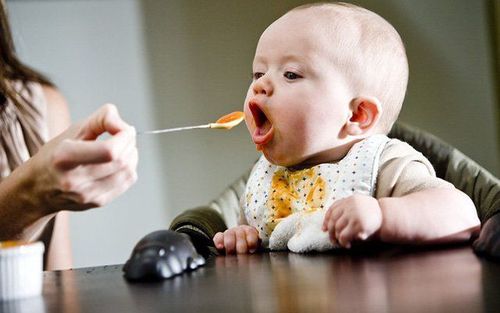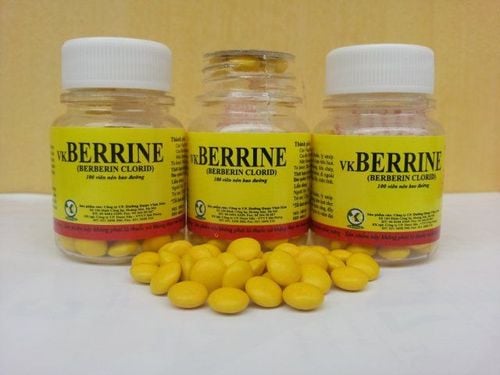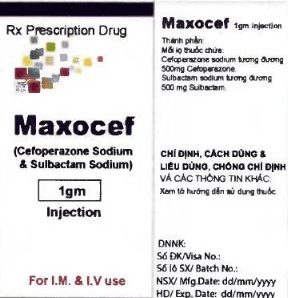This is an automatically translated article.
The article is professionally consulted by Doctor Nguyen Thai Ngoc Chau - Department of Pediatrics - Neonatology - Vinmec Phu Quoc International General Hospital.
The digestive system of young children is very vulnerable because it is not fully developed. Meanwhile, the viruses that cause inflammatory bowel disease in general are very contagious, especially in the child's nursery or school environment.
1. What is enteritis?
Enteritis is an infection of the intestines, caused by certain viruses, that causes diarrhea, and sometimes vomiting.The most common symptoms of inflammatory bowel disease in children are: fatigue, nausea, diarrhea, vomiting. Sometimes, children with inflammatory bowel disease also have symptoms such as fever or abdominal pain.
2. Causes of enteritis in children
Inflammatory bowel disease is most often caused by rotavirus and adenovirus, but there are many other viruses. Children can get inflammatory bowel disease more than once.Rota is a very contagious virus, they are everywhere around children, especially in common environments such as kindergartens and schools. The enteritis virus will be transmitted if:
Children touch objects of people suffering from this disease. Children have a habit of putting their hands in their mouths.

3. How to take care of babies with enteritis
If the child already has enteritis, the mother should pay attention to how to take care of the child, the inappropriate foods and drinks will make the child's illness worse. So when the child has enteritis, what should and should not be given to the child?3.1 Types of drinks that children should drink The best treatment for inflammatory bowel disease is to provide enough water for the child. Water in this case is considered to be different types of liquid. Mothers should note the following things when giving water to children:
Do not give children large amounts of water to drink, but should give children many times to drink with small amounts. Give your child water to drink even when he or she is vomiting. For babies who are breastfeeding or eating solid foods, mothers should continue to breastfeed and eat. However, with increasing frequency and quantity. If the baby is one year old, the mother can give the baby milk.
Mothers can also give their children the following drinks to make sure they don't become dehydrated. These waters must be diluted with water at a ratio of 5 parts water to 1 part solution:
Cordial. Soup. Fruit juice. Carbonated water like lemonade.

Soft drinks, sports drinks, fruit juices, .. . that has not been diluted. Because these drinks contain a lot of sugar, it will make your child's diarrhea worse. Tea or coffee, these drinks will cause dehydration for children. 3.3 How to take care of the child's diet Children can still eat as usual, eating enough nutrients will help them recover faster. Children may be anorexic, but mothers should coax their children to eat to quickly recover from illness, and avoid leaving them without food for 24 hours. Using simple starchy foods such as bread, porridge, rice, potatoes, yogurt, cookies, milk cakes is best. Avoid certain foods that make a child's condition worse such as fast food, snack, chocolate, candy, cake, ice cream,... See also: Proper nutrition for children with diarrhea
3.4 Ways for children take medicine Do not give children medicine to reduce diarrhea.
Diarrhea in children can cause a rash in the anal area also known as anal rash. Mothers should pay attention to wash and dry the anus of the child after each bowel movement, in addition, you can use some protective cream or ointment to apply to the child.
In many cases, if home treatment does not show positive signs. Mothers should take the child to see a doctor immediately if the child has the following symptoms:
The child is under six months old, has signs of vomiting or diarrhea. The child is unusually sleepy and difficult to wake. Children have severe diarrhea, about 8-10 times / day. Blood or mucus is present in the stool. Vomiting more and more, unable to control or drink, swallow liquids. The liquid the child vomits up is green (bile). Children have diarrhea continuously for 10 days. With the above causes and symptoms, hopefully mothers can soon detect signs of inflammatory bowel disease in their children. If the child has intestinal inflammation, the mother should feed the child, and drink according to the above notes to help the child recover the best, if the intestinal inflammation is left for a long time, it will cause the child to grow slowly, malnourishment or other unintended consequences. If you want to be different, parents should pay attention so that the child can develop the best.
In addition, parents can protect their children from rotavirus by giving them rotavirus vaccine at the right time, in the right dose, and by following the doctor's instructions. .
Vinmec International General Hospital has been deploying immunization services with a variety of vaccines for different audiences, from infants, young children, adults, and women before and during pregnant. In which, there are 2 vaccines to prevent Rota diarrhea: Rota is produced by GSK in Belgium and Rota is manufactured by MSD company in the US.
The advantages when customers choose to get vaccinated at Vinmec include:
Children will be examined by pediatricians - vaccines, fully screened for physical and health problems, provide advice on preventive vaccines and injection regimens, how to monitor and care for children after vaccination before ordering vaccination according to the latest recommendations of the Ministry of Health & World Health Organization to ensure ensure the best effect and safest for children. A team of experienced and professional pediatric doctors and nurses, understand children's psychology and apply effective pain relief methods for children during the vaccination process. 100% of vaccinated children were monitored for 30 minutes after vaccination and reassessed before leaving. Undertake medical supervision before, during and after vaccination at Vinmec Health System and always have an emergency team ready to coordinate with the vaccination department to handle cases of anaphylaxis, respiratory failure - circulatory arrest, ensuring Ensure timely and correct handling when incidents occur. The vaccination room is airy, with a play area, helping children feel comfortable as if they are walking and have a good mentality before and after vaccination. Vaccines are imported and stored in a modern cold storage system, with a cold chain that meets GSP standards, keeping vaccines in the best conditions to ensure quality. Parents will receive a reminder message before the vaccination date and their child's vaccination information will be synchronized with the national immunization information system.
Please dial HOTLINE for more information or register for an appointment HERE. Download MyVinmec app to make appointments faster and to manage your bookings easily.














